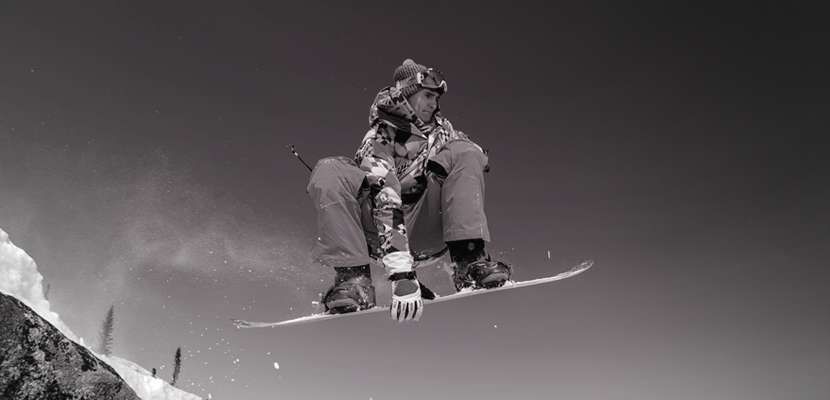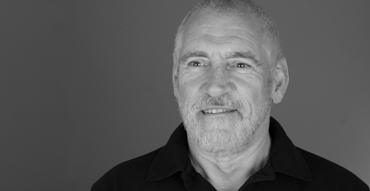Pacing your fear
31 Jan 2018

I have the pleasure of working with New Zealand Ski and Snowboard. The three events of Slopestyle (think a skate park on snow – rails and jumps), Half Pipe (a five or six hit run down a rounded deep trench, with tumbling tricks done on each hit to form a sequence) and Big Air (best of three attempts – take a run at a take off ramp, then fly through the air tumbling as you go) are scored by a judging panel who look for style as much as difficulty. Like any sport, all the athletes face some degree of challenge. Importantly, however, and unlike many other sports, this extends across both the competitive (e.g. “will I win/do myself justice/”) and training (e.g. “will I be able to learn/complete this move safely?”) environments. As such, the usual challenges of self-regulation and coping are doubled; even more so since looking smooth and in control are part of the judging criteria. So, in short, you need to learn challenging and dangerous tricks, string them together in an aesthetically pleasing sequence, then execute them perfectly in competition whilst looking cool. Simples? NOT!
As a psychologist, working with any athlete is a fascinating challenge. Vital to work out and counter the challenges of the sport but equally important to cater for each individual, exploiting strengths whilst countering or trying to eliminate weaknesses. Lots of this work uses conventional mental skills such as imagery, thought stopping and setting goals. There are a few extras which, whilst not unique to freesking and snowboarding, are particularly relevant. I want to talk about one of them; emotional periodisation.
Periodisation has traditionally been used by Physiologists and Conditioners. When designing training, workload was deliberately varied, or periodised, in an attempt to ensure a peak (the best performance) at specific events. So imagine Usain Bolt (he’s a somewhat quick runner), who would start his year with a high volume of work, say endurance and strength. As the season approaches, he would cut down the volume and up the intensity; moving towards shorter bursts of higher workload and power. In season, just before the peak event, Usain would be doing relatively few sessions oat100% or even more. Quantity has progressed to quality.
For physical training, the concept has come in for some recent criticism. For example, researchers have questioned whether the same training programme can really generate predictable outcomes in a range of different athletes. Periodisation has all sorts of applications to psychological pressures however, so long as individual differences are addressed.
The idea of Emotional Periodisation is that each athlete is differentially challenged to optimise the outcome. The intense emotional effort invested in planning, acquiring then executing new high-end tricks contrasts with the comparatively straight forward focusing on simpler, well-rehearsed skills. Comparative downtime is also important, offering recuperation and ensuring enjoyment. Reflecting this, plans are built around the quanta of mental energy needed across each day, week or month. Knowing yourself, and auditing this with others is another important factor. Extreme challenge sports carry the risk of what researchers have called “costly perseverance”; keeping on keeping on when you aren’t on top form can have very serious consequences.
BUT…
the athlete must also know when to push. However scary and challenging that push is, without it there is no progress. Once again, auditing that process and working to ‘pace’ yourself helps to optimise return from the high challenge moments.
The NZ coaches have developed a structure of PUSH - DRILL – PLAY which offers a simple but powerful way of planning, interacting and monitoring the emotional load. PUSH days/sessions are just what it says on the tin; working at maximum intensity to extend skill sets with new tricks. DRILL days offer a lower intensity but essential phase of what research has called ‘embedding’. Making skills more automatic, building confidence and elaborating the trick with extra ‘showy bits’ likes different grabs. PLAY is a low level session/day; maybe just shredding on powder snow but offering a mental rest whilst re-energising the soul!
Of course, physical challenge is involved, although less than many other winter sports. In contrast, however, the emotional challenge can be very high, especially when athletes are taking new tricks to snow for the first time. Accordingly, ensuring sufficient mental recovery is a big feature of life for these athletes. On a daily basis, for example, coaches and support staff will ensure time away from structured practice and offer activities for athletes to decompress. ‘Vegging out in the hotel room’ is an important element of maintaining quality on the slopes, not a mark of idleness! Importance of regular ‘anchor sleep’ is another aspect for attention, whilst the regenerative and learning benefits of sleep are also important. Facilitating engagement in other low-risk but stimulating activities for ‘re-creation’ is a planned process for any training camp. Athletes live in a close proximity bubble; so getting away from the venue, indeed each other, is just good sense. Trips for surfing, skating, into different towns or just shopping as ‘retail therapy’ serve to facilitate focus on the high-risk days. Finally, as macro concerns across the athlete’s career, good practice will encourage life balance and other goals for distraction from the stressors of training and competition; pressures which can be characterised as living life on a knife edge.
So, as you watch the amazing performances of the skiers and snowboarders at the Olympics, take time to appreciate the levels of work, physical but largely mental, that have got them there.
My thanks to Tom Willmott and Sean Thompson; Master Coaches on the NZ Programme
Author: Dave Collins

A leap forward in performance
To find out how Grey Matters can take you or your athletes to the next level click below to get in touch.
Contact us
A message from Dave Collins
Performance psychologistIn an increasingly confused world of ‘sciency’ researchers and commercial gurus, Grey Matters focus on providing a clear, evidence-based service that puts YOU in charge.
View Dave on LinkedIn